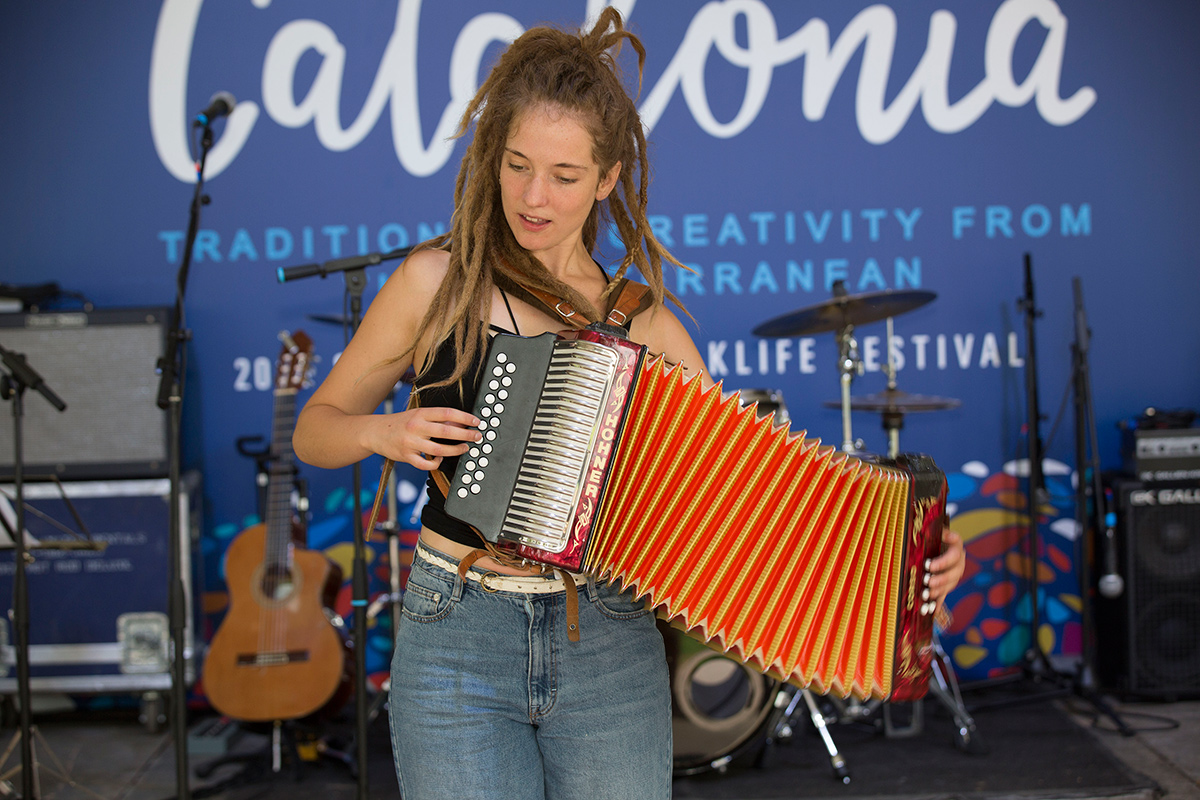Folklife Soundbite: The Pirate of the Mountain

How is a folktale formed? Or a folksong composed? Definitions may vary, but usually there is an element of oral transmission, passed down among families, at parties and protests, around campfires and kitchen tables, from mother to daughter, master to apprentice.
But Alidé Sans? She just makes up her own.
Even at age twenty-five, her story about a humble man named Joanetun holds the wisdom of generations. She shared it with us at the Ateneu Exchange in a session about language and music in La Vall d’Aran, Catalonia.
Joanetun came from the Pyrenees Mountains, just like Alidé. He had no money, no gold, no silver, no diamonds, but he didn’t mind. He was at peace. He was happy.
One night, the Atlantic wind blew in, and it made him crazy. All of a sudden, Joanetun wanted to become a pirate! He wanted all the money, all the gold, all the silver, and all the diamonds in the world. Before long, he had traveled far and earned the reputation of the most fearsome pirate, with all the money, all the gold, all the silver, and all the diamonds, but only after killing people, burning villages, and stealing their belongings.
Then, the mountain wind blew in.

“Can you imagine what happened with the mountain’s wind?” Alidé asked the audience.
If every folk hero reaches a revelation, Joanetun’s journey was right on track: a young girl correctly guessed.
With the mountain wind, Joanetun came back to his senses. He said, “I don’t need all these things. All I want is to go back home and walk on the wet grass. So goodbye, my pirate friends.” He returned to the mountains, with no money, no gold, no silver, no diamonds. He was happy.
After telling the story in English, Alidé went into the audience with her button accordion to sing it in Occitan, a Romance language spoken in the Pyrenees regions of Spain, France, Italy, and Monaco. She asked us to pitch in, by letting out a yelp anytime she jerked her body in a strange way. We howled along as she twisted around the small crowd.
So now I’m retelling the story, and maybe you’ll retell it too. And in a hundred years, maybe Alidé’s folktale and song will still be a lesson in greed and gratification—how to be happy.
Elisa Hough is the editor for the Smithsonian Center for Folklife and Cultural Heritage. Find more of Alidé Sans’ music on Spotify and in the Festival Marketplace.

